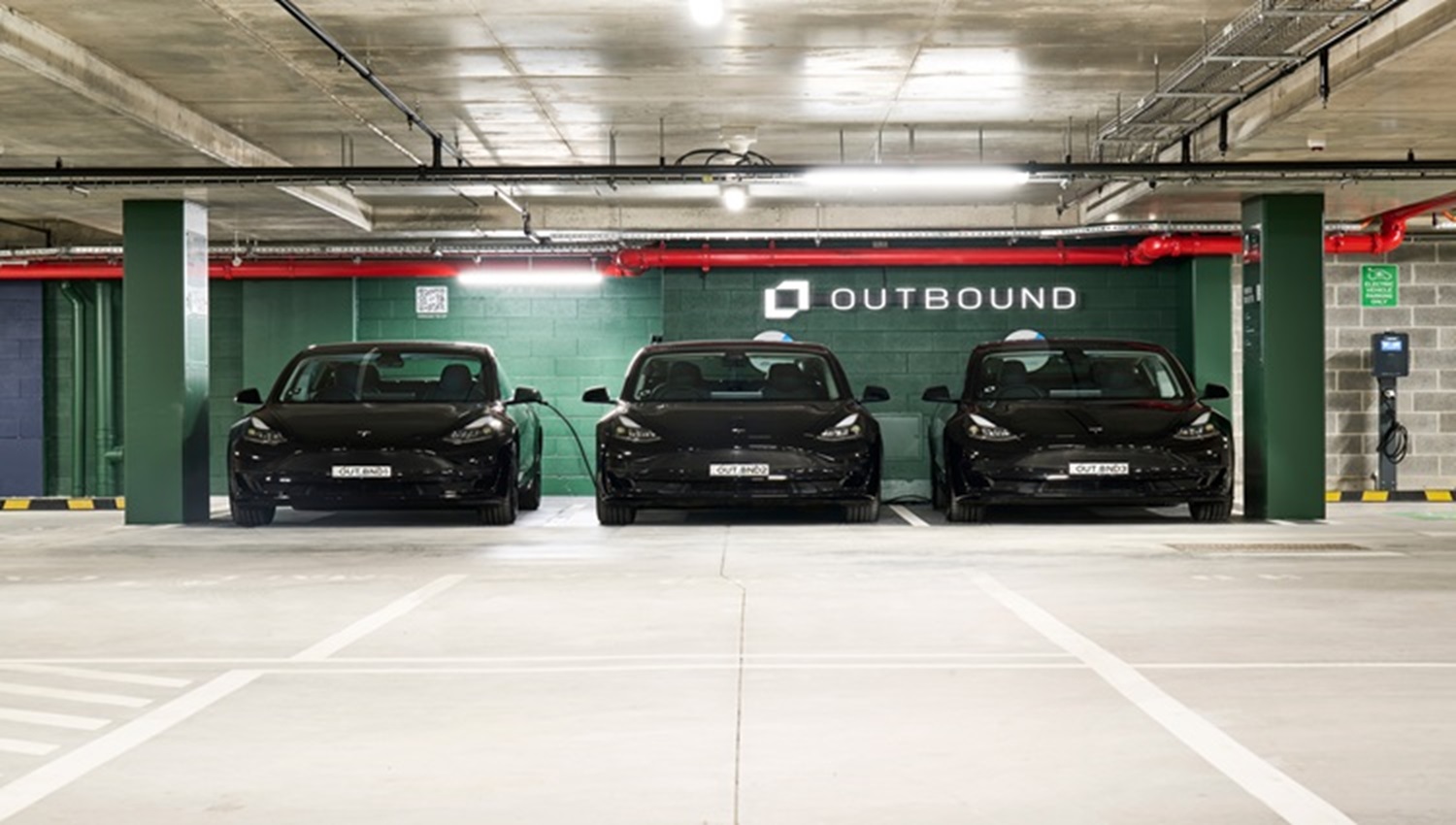Demand for EV charging infrastructure is on the rise
28/11/2024 | The Australian
Transportation contributes about 18 per cent of the nation’s total emissions, so the transition to electric vehicles is one pathway to reducing Australia’s carbon footprint.
EVs have emerged as a key component in the shared, greener transportation economy across the capital cities as the national tally of sales approaches 270,000. And sales are much higher if hybrid-fuelled vehicles are included.
According to Road Genius, NSW currently has about 650 public charging stations, with Sydney at 270. Public charging locations have needed to catch up, and leading property developers are embracing the demand.
At Aura, its recently completed apartment project in North Sydney, Aqualand has partnered with Outbound Mobility to offer residents access to three shared Tesla vehicles complete with charging stations.
Designed by architects Woods Bagot, Aura was marketed as “an emblem of North Sydney’s progressive future”. The first residents recently moved into the 28-Storey Island luxury tower with its distinctive curtain facade. It is only 250m from the new Victoria Cross Metro station and 400m from North Sydney station.
Aura’s on-demand Tesla Model 3 vehicle pool means residents don’t need to own a car but can book one if they need a vehicle to go somewhere.
The service is facilitated through the Outbound app, with residents able to book and even open the Teslas from their phones for just $20 an hour, or a flat rate of $120 a day. The arrangement went live last month, powered by SUPA Energy.
Outbound, and services provider Smart Urban Properties Australia (SUPA), have also recently collaborated with property developer Bridgestone Projects with electric car sharing at the Château Showground project in Sydney’s Castle Hill. Outbound chief executive Luke Rust reckons the average car in Sydney is parked 96 per cent of the time.
The company has seen strong demand at its two marquee residential locations in Melbourne – the build-to-rent Beach House project at 1 Wellington Street, St Kilda, and Montague Square, South Melbourne.
The Melbourne offerings have resulted in the EVs being used during the recent quarter at an average of 176 hours per car, per month. “We expect similar usage moving forward at Aura,” says Outbound’s Rust.
The current car-sharing economy in Australia is valued at $591m and is forecast to increase to $674m by 2029 with 990,000 users, according to statista.com. This reflects a user penetration of 2 per cent.
Despite a slow start, car sharing in Australia is gaining momentum, with players such as GoGet and Flexicar leading the market, buoyed by recent data from the Australian Automotive Association showing that owning a car costs Sydney drivers more than $25,000 a year.
Tesla remains the best-selling EV in Australia, accounting for two in five sales, followed by BYD’s Seal sedan and the Atto 3 small SUV.
While sales have flatlined this year, the take-up is tipped to increase given the wave of cheaper Chinese-manufactured EVs and declining battery costs.
Increased demand for fuel-efficient, high-performance and low-emission vehicles comes alongside increasingly strict laws and regulations on vehicle emissions. But motorists are more likely to buy EVs with an ability to charge at home, especially in new apartment complexes.
Making older apartment buildings EV compatible can be complex and expensive for several reasons, including the fact that many car spaces don’t have individual power outlets. Plus, these buildings may not be able to handle higher power loads.
The NSW government has a trial EV Ready Buildings Grant aimed at encouraging the installation of charging infrastructure in strata buildings, with co-funding of up to $80,000.
With a $10m budget allocation, the grant process includes two stages, with the initial successful applicants now applying for stage two funding.
The first stage involved a feasibility assessment, typically costing between $2000 and $10,000, assessing a building’s power capacity, along with options that range from so-called trickle-charging using wall outlets to level-two EV fast chargers.
The second stage offers co-funding of up to 80 per cent of infrastructure costs and 50 per cent of software subscription costs. Installation costs could vary from $25,000 to $300,000.
The initiative is part of the $209m charging infrastructure investment driven by NSW Minister for Climate Change and Energy Penny Sharpe, who is seeking to expand the state’s options to top up battery power.
Kerbside chargers will be installed across 16 local government areas under the project, which will add 671 public charging ports across Sydney and Newcastle.
